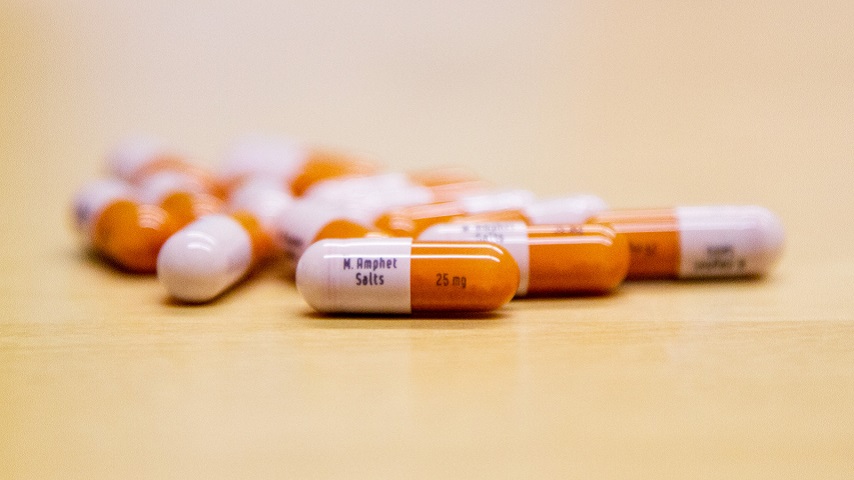Adderall, a widely prescribed medication for Attention Deficit Hyperactivity Disorder (ADHD) and narcolepsy, works best when taken at the right time. While most people focus on the dosage, the timing of taking Adderall in relation to meals can significantly affect its effectiveness. This article explores how long you should wait after eating to take Adderall, why timing matters, and tips to optimize your medication routine.
Understanding Adderall and How It Works
What is Adderall?
Adderall is a stimulant medication composed of amphetamine and dextroamphetamine. It enhances focus, attention, and impulse control by increasing the levels of certain neurotransmitters in the brain, primarily dopamine and norepinephrine.
How Food Affects Adderall Absorption
Adderall’s effectiveness can be influenced by various factors, including the presence of food in the stomach. When taken with food, especially fatty or acidic foods, the absorption rate of Adderall may be delayed, leading to a slower onset of effects. This delay can be problematic for those who rely on the medication to start their day with improved focus and energy.
How Long Should You Wait After Eating to Take Adderall?
General Guidelines for Timing
The ideal time to take Adderall is usually 30 to 60 minutes before eating. This allows the medication to be absorbed more efficiently, leading to quicker and more consistent effects. If you’ve already eaten, it’s generally recommended to wait at least 60 to 90 minutes before taking Adderall to avoid interference with absorption.
Factors That Can Influence Timing
Type of Food Consumed: Foods high in fat or acidity can significantly delay Adderall’s absorption. High-fat meals slow gastric emptying, while acidic foods can alter the pH level of the stomach, impacting how long to wait after eating to take Adderall.
Individual Metabolism: Metabolic rates vary among individuals, affecting how quickly the stomach empties after eating. Faster metabolisms may require a shorter waiting period, while slower metabolisms might need more time.
Adderall Formulation: Immediate-release (IR) and extended-release (XR) formulations of Adderall may react differently when taken with food. While IR forms are more sensitive to food intake, XR formulations are designed to release gradually and may be slightly less affected by the timing of meals.
The Impact of Food on Adderall’s Effectiveness
Foods That Can Affect Adderall Absorption
Certain foods and beverages can have a more pronounced impact on how Adderall is absorbed and utilized by the body. Understanding which foods to avoid or limit can help optimize the effectiveness of your medication.
1. High-Fat Meals
High-fat meals, such as fried foods, cheeseburgers, or creamy dishes, can slow down the stomach’s ability to empty. This delay can cause a slower release of Adderall, diminishing its immediate effects.
2. Acidic Foods and Beverages
Citrus fruits, vinegar, sodas, and other acidic foods can lower the pH level in your stomach, affecting the absorption of Adderall. This is because Adderall is a weak base and can become less soluble in an acidic environment, leading to reduced absorption.
3. Dairy Products
Dairy products, including milk, cheese, and yogurt, contain calcium and other minerals that can interfere with the absorption of Adderall. These minerals can bind with the medication, reducing its effectiveness.
Tips for Optimizing Adderall Timing
Best Practices for Taking Adderall
Take on an Empty Stomach:
For optimal absorption, take Adderall on an empty stomach, ideally 30 to 60 minutes before eating. This helps ensure the medication is absorbed efficiently and provides the maximum therapeutic effect.
Plan Your Meals:
If you prefer to eat before taking Adderall, try to schedule meals that are light and low in fat. Avoid heavy or greasy foods close to your medication time.
Monitor Your Response:
Keep track of how you feel after taking Adderall at different times relative to meals. Everyone’s body responds differently, so understanding your unique reaction can help you determine the best timing.
Adjusting Your Routine Based on Your Needs
If you find that taking Adderall on an empty stomach causes discomfort or other issues, such as nausea, you may need to adjust your routine:
Light Snacks:
Opt for a light snack that’s low in fat and acidity, such as a piece of toast or a small serving of plain oatmeal, to reduce stomach upset without significantly impacting absorption.
Consistency is Key:
Establish a consistent routine for when you take Adderall in relation to your meals. Consistency helps maintain steady medication levels in your body, improving the overall effectiveness of your treatment.
Potential Side Effects of Taking Adderall With Food
Common Side Effects
While taking Adderall with food is generally not harmful, it can lead to delayed or reduced effects, which may cause you to feel like the medication is not working as intended. Common side effects that may arise when Adderall is not absorbed properly include:
Reduced Focus:
A slower onset of medication effects may result in decreased concentration during the initial hours after taking Adderall.
Fatigue:
Instead of feeling energized, some may experience increased tiredness if Adderall’s absorption is delayed.
Digestive Issues:
Taking Adderall with or after a heavy meal can sometimes cause gastrointestinal discomfort, such as bloating or indigestion.
When to Consult Your Doctor
Adjusting Your Medication Routine
If you consistently find that Adderall does not work effectively when taken with or shortly after eating, it’s important to consult your healthcare provider. They can help you adjust the timing, dosage, or formulation of your medication to better suit your needs.
Special Considerations
Dietary Restrictions:
If you have dietary restrictions or health conditions that require specific eating habits, discuss these with your doctor to find the best approach for timing your medication.
Medication Interactions:
Some medications can interact with Adderall and affect its absorption. Ensure your doctor is aware of all medications and supplements you are taking.
Conclusion
Timing your Adderall intake in relation to meals can make a significant difference in how effectively the medication works. Ideally, taking Adderall 30 to 60 minutes before eating, or waiting at least 60 to 90 minutes after eating, helps maximize its effects. Understanding the impact of food on medication absorption, establishing a consistent routine, and consulting with your doctor when necessary can help you make the most of your Adderall treatment.

